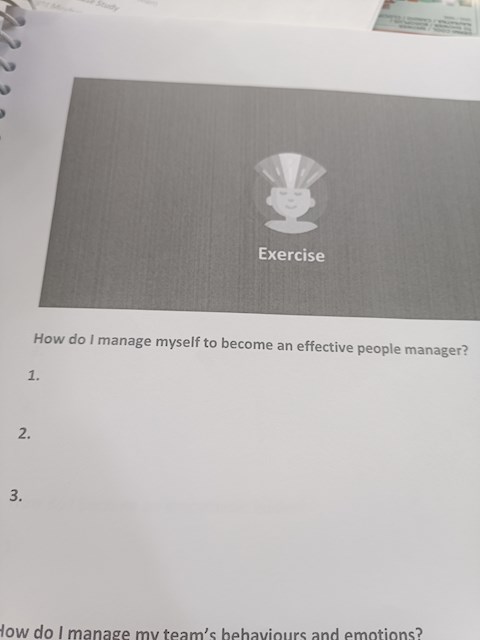1 answer
Sort By
Anonymous
Jun 21, 2023
Becoming an effective people manager requires a combination of leadership skills, self-awareness, and a commitment to continuous improvement. Here are some key strategies to help you manage yourself effectively and become a successful people manager:
- Develop self-awareness: Understand your strengths, weaknesses, and personal values. Self-awareness allows you to recognize how your behavior and actions impact others. Regularly reflect on your managerial style and seek feedback from your team to identify areas for improvement.
- Build strong communication skills: Effective communication is crucial for managing people. Practice active listening, be open to different perspectives, and clearly articulate expectations, goals, and feedback. Adapt your communication style to suit individual team members' needs.
- Lead by example: Demonstrate the qualities and behaviors you expect from your team. Act with integrity, show professionalism, and maintain a positive attitude. Be reliable, accountable, and consistent in your actions.
- Foster a positive work culture: Create a supportive and inclusive environment where team members feel valued, respected, and motivated. Encourage collaboration, celebrate achievements, and provide opportunities for personal and professional growth. Promote work-life balance and show empathy towards your team members' needs and concerns.
- Develop coaching and mentoring skills: Help your team members reach their full potential by providing guidance and support. Encourage their growth through regular feedback, setting challenging yet achievable goals, and offering opportunities for skill development. Foster a learning mindset and provide constructive criticism when needed.
- Delegate effectively: Trust your team members with responsibilities and empower them to make decisions. Clearly define tasks, provide adequate resources, and ensure everyone understands their roles and responsibilities. Be available for guidance and support, but avoid micromanaging.
- Resolve conflicts and provide constructive feedback: Address conflicts promptly and objectively. Encourage open dialogue, actively listen to all parties involved, and seek mutually beneficial solutions. Provide constructive feedback regularly, focusing on specific behaviors and outcomes rather than personal criticism.
- Continuously learn and adapt: Stay updated with industry trends, management techniques, and best practices. Attend workshops, conferences, or take relevant courses to enhance your managerial skills. Seek feedback from your team, superiors, or mentors to identify areas for growth and improvement.
Becoming an effective people manager is an ongoing journey. It takes time, effort, and a genuine interest in the well-being and success of your team members. Continuously reflect on your actions, learn from experiences, and adapt your management style to meet the evolving needs of your team and organization.
0
